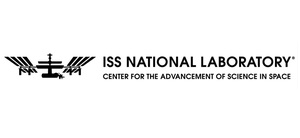Nearly 50 payloads safely splashed down to Earth on SpaceX's 31st Commercial Resupply Services Mission for NASA
KENNEDY SPACE CENTER, Fla., Dec. 17, 2024 /PRNewswire/ -- Research that could enable early cancer detection, advance treatments for neurodegenerative conditions, and improve respiratory therapies returned from the International Space Station (ISS) on SpaceX's 31st Commercial Resupply Services (CRS) mission for NASA. SpaceX's Dragon spacecraft splashed down off the coast of Florida with nearly 50 biotechnology, physical science, and student research payloads sponsored by the ISS National Laboratory®.
These investigations are among those that leveraged the unique environment of the space station for the benefit of life on Earth:
- Bristol Myers Squibb, in collaboration with ISS National Lab Commercial Service Provider Redwire Space, built on its legacy of protein crystallization on the space station with a project seeking to crystallize model small molecule compounds to support the manufacturing of more effective therapeutics. Crystals grown in microgravity are often larger and more well-ordered than those grown on the ground and could have improved morphology (geometric shape).
- Several payloads that returned were funded by the U.S. National Science Foundation (NSF). Among them, a project from the University of California, Santa Barbara aimed to leverage microgravity to understand how mucus that lines the human airway affects the delivery of medication to the lungs. This investigation, which launched on NASA's SpaceX CRS-29 in November 2023, used gel-coated tubes to study the role of mucus in the transport of liquid plugs through the airway. Results from this project could improve modeling of drug delivery for treatments such as surfactant replacement therapy (a treatment for infants with respiratory distress syndrome).
- In another investigation funded by NSF, University of Notre Dame researchers built on the success of prior work on the space station examining the physics of bubble formation in microgravity. The team used light to generate bubbles that can collect, concentrate, and deposit trace amounts of substances in a solution onto a surface for collection and analysis. Results could lead to new biosensor technology for detecting early cancer markers in blood or trace substances in liquids.
- Multiple projects sponsored by the ISS National Lab and funded by NASA focused on in-space production applications, an area of strategic importance to both organizations. One investigation by Sachi Bioworks, working with ISS National Lab Commercial Service Provider Space Tango, tested novel gene-targeting drugs on brain organoids to advance the development of new therapeutics for neurodegenerative conditions such as Alzheimer's disease, Parkinson's disease, Lou Gehrig's disease, and glioblastoma (a fast-growing and aggressive brain tumor).
- Students in Ohio testing the Liquid I.V.® powdered hydration solution on plant cells in space were among nearly 40 teams conducting experiments as part of Student Spaceflight Experiments Program (SSEP) Mission 18. SSEP aims to prepare the next generation of scientists and engineers by actively engaging school communities in the development of scientific investigations to be conducted in microgravity. More than 35 communities took part in this SSEP mission, engaging hundreds of students in grades 5-12, junior college, and undergraduate studies.
The ISS National Lab enables access and opportunity for researchers to leverage this unique orbiting laboratory for the benefit of humanity and to enable commerce in space. To learn more about ISS National Lab-sponsored investigations that flew on NASA's SpaceX CRS-31, please visit our launch page.
Download a high-resolution image for this release: SpaceX Dragon Freedom spacecraft
About the International Space Station (ISS) National Laboratory:
The International Space Station (ISS) is a one-of-a-kind laboratory that enables research and technology development not possible on Earth. As a public service enterprise, the ISS National Laboratory® allows researchers to leverage this multiuser facility to improve quality of life on Earth, mature space-based business models, advance science literacy in the future workforce, and expand a sustainable and scalable market in low Earth orbit. Through this orbiting national laboratory, research resources on the ISS are available to support non-NASA science, technology, and education initiatives from U.S. government agencies, academic institutions, and the private sector. The Center for the Advancement of Science in Space™ (CASIS®) manages the ISS National Lab, under Cooperative Agreement with NASA, facilitating access to its permanent microgravity research environment, a powerful vantage point in low Earth orbit, and the extreme and varied conditions of space. To learn more about the ISS National Lab, visit our website.
As a 501(c)(3) nonprofit organization, CASIS® accepts corporate and individual donations to help advance science in space for the benefit of humanity. For more information, visit our donations page.
Media Contact: |
Patrick O'Neill |
904-806-0035 |
|
International Space Station (ISS) National Laboratory |
|
1005 Viera Blvd., Suite 101, Rockledge, FL 32955 • 321.253.5101 • www.ISSNationalLab.org |
SOURCE International Space Station National Lab

WANT YOUR COMPANY'S NEWS FEATURED ON PRNEWSWIRE.COM?
Newsrooms &
Influencers
Digital Media
Outlets
Journalists
Opted In






Share this article